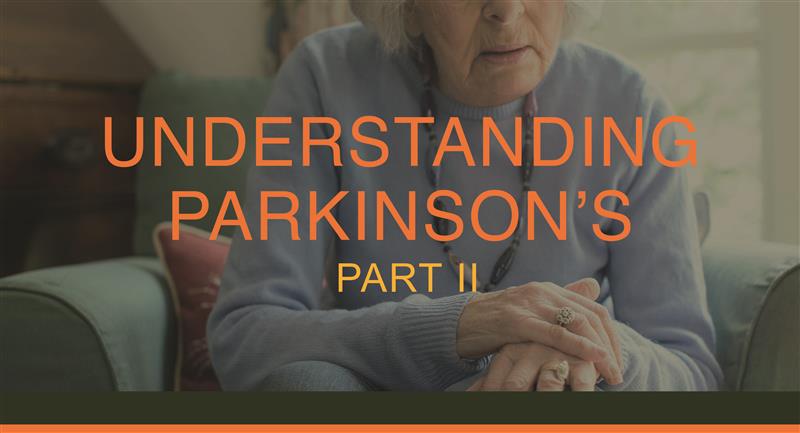Recently, we released Understanding Parkinson’s Part I, the first instalment of our focus on Parkinson’s Disease and the effects it has on those suffering, as well as their friends and families. Charlie, MD here at Huntington and Langham, along with his team of expert staff, offer their advice.
Alongside Charlie, Maggie and Louise have also provided some answers. Louise, General Manager, and Maggie, Manager at Huntington House, care for people at our home who are living with Parkinson’s, and so have some personal, expert advice to offer.
Here are some of the insights that we’ve pulled together from providing daily care for those living with the condition.
What are people’s biggest misconceptions about living with Parkinson’s?
There are many misconceptions about Parkinson’s; one of the main ones being that people can no longer achieve what they used to. However, with the right support (i.e. physiotherapists, speech and language therapy), many are able to continue living their lives independently, meaningful, enriched and as safe as possible
Care and support from a family member is invaluable. They know you better than anyone else; your likes and dislikes, and parts of their personality that they may not reveal to anyone else.
They’re likely to trust you more than anyone else they know, so take care to listen wholeheartedly. Often, people with Parkinson’s will open up to their trusted loved ones rather than anyone else.
How can advancements in technology help people living with Parkinson’s?
Technology is another tool we can use to improve the wellbeing and independence of people with Parkinson’s.
When thinking about tools in a care home, people might think of mobility aids or modified cutlery and cups for example, but it can be expanded so much further than that.
For instance, we are about to embark on a live VR (virtual reality) project with Surrey University. This will enable people with limited mobility to join family members on their favourite walk or at a family wedding in real-time, without the anxiety and discomfort of a long day in a wheelchair.
We’ve already trialled some simulation projections (think social VR experience with screens instead of a headset) with Surrey University in their ‘Bringing the Outdoors Indoors’ project. The project immersed people in walks around local landmarks such as Waggoner’s Wells, which are inaccessible by wheelchair. Not only did it give people the sense that they were walking again, but it gave them access to places (and indeed memories) they thought they’d never see again.
How does the model you follow help those with Parkinson’s?
At Huntington and Langham Estate, we’re proud to use The Butterfly Model in our approach to care. It takes a holistic viewpoint, focusing on each individual as a whole; not just their diagnosis.
When a resident with Parkinson’s said they’d always wanted to ride a Harley Davidson, we didn’t chalk it up as an old lady’s dream, we made it happen.
When you live independently, you take risks all the time. But it’s often a different story when you require care support – priorities shift, and when people are making decisions on your behalf the onus often becomes safety.
However, if the person you’re caring for enjoyed taking risks (this particular resident’s favourite story to tell was how her father once caught her climbing on the roof of her house!) then it is important to allow them to continue doing so to keep their spark alive.
At the estate, we ensure that all our residents living with Parkinson’s have a tailored care plan that enables the team to provide individualised care. We have a good relationship with a speech and language therapist who is very experienced in supporting people with Parkinson’s. We often work together to offer the best care for the people who live with us.
How do you support person-centred care with someone living with Parkinson’s disease?
If someone at the estate has Parkinson’s and struggles to eat, but would still like to sit with their friends, a carer will discretely sit with them and support them at the dining table. This helps to maintain their dignity and safety, whilst enabling them to interact and socialise with other people at mealtimes.
When we welcome new people who are living with Parkinson’s, we make sure that we can first meet their needs and keep them safe, whilst enabling them to live the life they wish.
This is the essence of the person-centred approach. We always take care to consider which bedroom would be best for them, ensuring they have adequate space to support their special requirements.
We actively try to get those with Parkinson’s involved with on-site activities – and from doing so, we see positive results.
The most beneficial activities tend to be music playing, engaging with animals that visit (like the ponies), and of course the children. We also like to encourage them to join us for off-site trips – from which, they return home with their whole well being lifted.
At the estate, providing individualised, person-centred care is at the heart of what we do, for all at the home, whatever the ailment.
Get in touch with us today to learn a little more about what we do and let our family look after yours.

